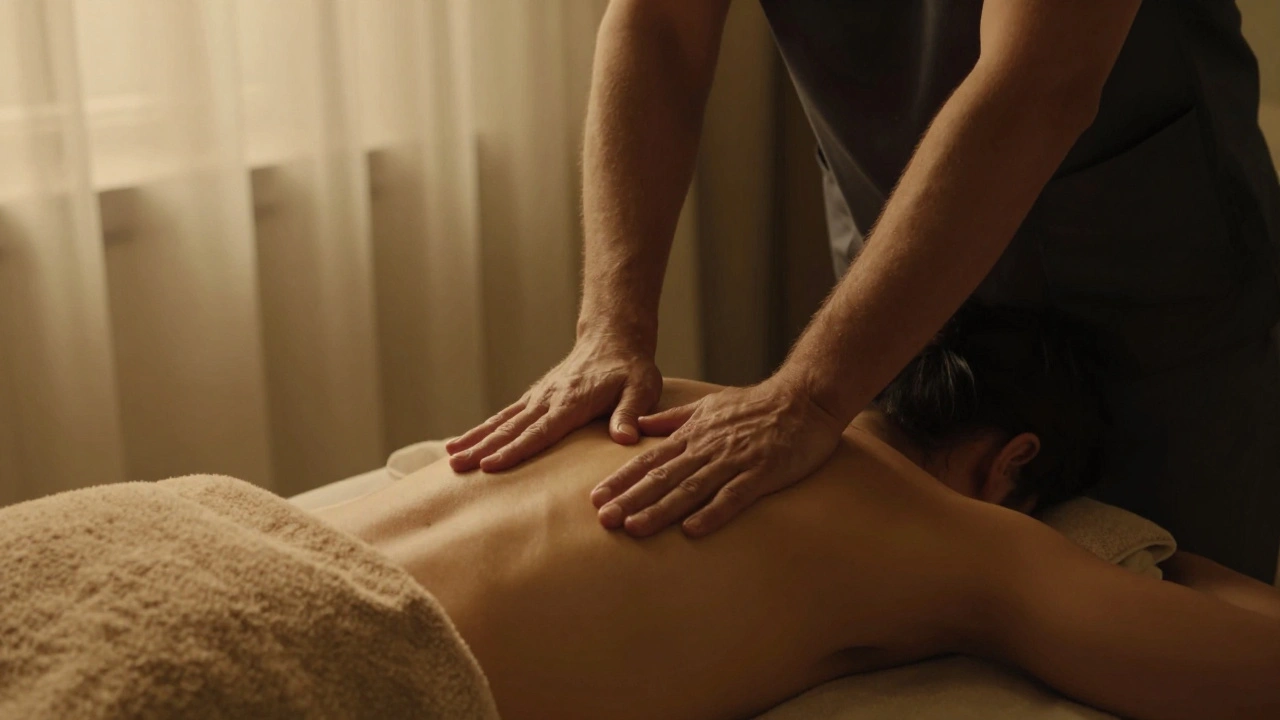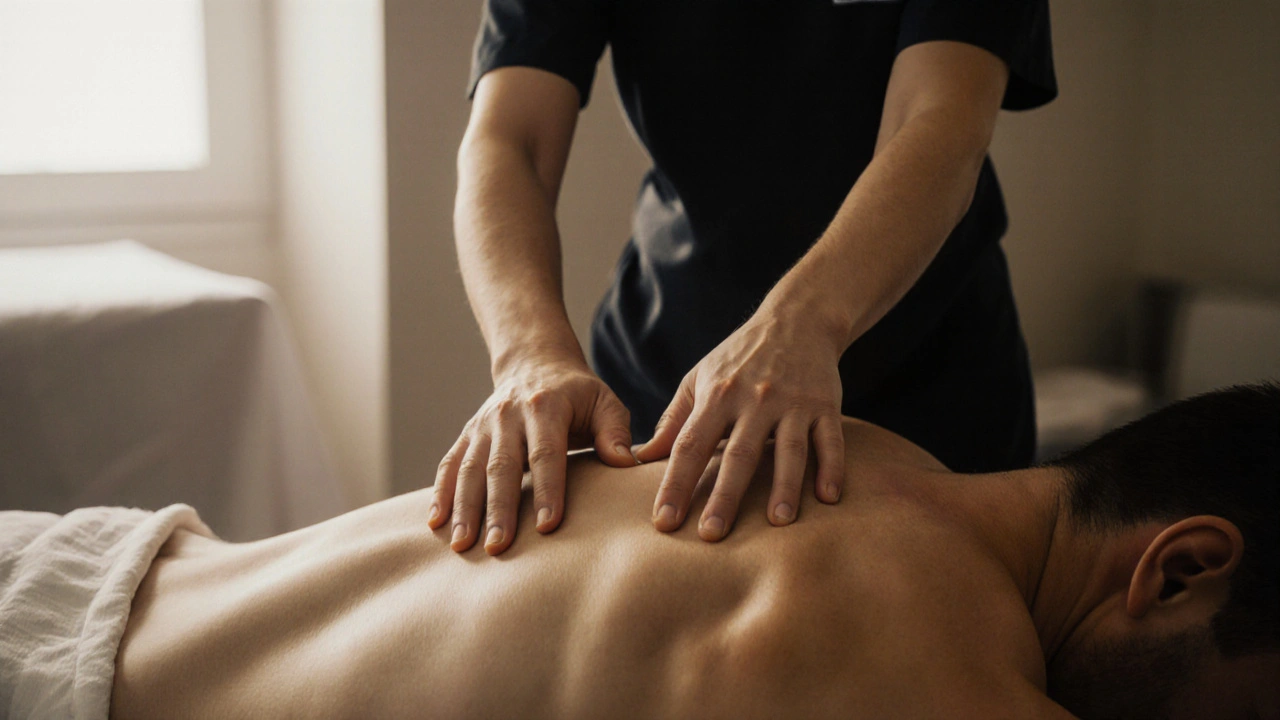If you’re tired of sore shoulders, tight back muscles, or lingering stress, a deep tissue massage could be the answer. Unlike a gentle Swedish rub, this technique targets the deeper layers of muscle and fascia. The therapist uses firm pressure and slow strokes to break down knots and improve circulation. Most people feel a bit of discomfort at first, but the relief lasts for days after the session.
Deep tissue work is especially good for athletes, desk‑workers, and anyone who moves a lot without proper stretching. It helps reduce chronic pain, improve range of motion, and even lower blood pressure. Because the pressure is stronger, you’ll want to tell your therapist about any injuries or sensitive areas beforehand. That way they can adjust the intensity and avoid causing bruises.
The therapist starts with a warm‑up using lighter strokes to get the blood flowing. Then they slow down and press harder, often using elbows, forearms, or knuckles. This pressure reaches the deeper muscle fibers that regular massages miss. When the therapist finds a knot, they hold the pressure for a few seconds, then release, which helps the tissue relax.
Breathing plays a big part too. Deep breaths let your body stay relaxed while the therapist works on tight spots. If you feel a sharp sting, just say "too much" and the therapist will ease off. Most sessions last 60 to 90 minutes, giving enough time to treat multiple problem areas.
London has plenty of qualified massage therapists, but not all specialize in deep tissue. Look for credentials like a Level 3 Diploma in Sports Massage or a membership with the UK Association of Professional Bodyworkers. Reading recent client reviews can show how well a therapist handles pressure and communication.
When you call to book, ask about their approach: Do they use oils, ointments, or go dry? Some therapists blend techniques, adding a bit of Swedish to warm up muscles before the deep work. Pricing varies – expect £70‑£120 for an hour, but many places offer package deals that save you money if you plan regular sessions.
After the massage, drink plenty of water. Hydration helps flush out toxins released from the muscles. You might feel a bit sore the next day, similar to a light workout; gentle stretching can ease that feeling. If pain lasts more than 48 hours, contact the therapist to discuss what happened.
In short, deep tissue massage is a powerful tool for muscle relief and stress reduction. It’s not just a luxury; it’s a practical way to keep your body moving comfortably. Whether you’re an office worker, a runner, or just someone with a stiff neck, give it a try and notice the difference.

Deep tissue massage targets chronic muscle tension and adhesions to improve mobility, reduce pain, and support recovery. Learn how it works, who it’s for, and how to get the most from each session.

Discover the top 5 reasons to try deep tissue massage today - from chronic pain relief to improved mobility. Learn what to expect, who it's for, and how to find a qualified therapist in London.

Deep tissue massage targets chronic muscle tension and pain with focused pressure, helping relieve stress, improve mobility, and boost emotional well-being. Learn how it works, who it’s for, and how to get the most from each session.

Discover how deep tissue massage melts away stress, boosts wellness, and nurtures both body and mind, with helpful tips for your next London session.

Discover how a deep tissue massage in London restores muscles, relieves pain, and enhances wellness using your body's own healing powers.

This no-BS guide peels back the curtain on London's wild world of sports massage for men. Discover why the best sports massage in London isn’t just your average rub-down—it's a ticket to faster recovery and a major mood upgrade. If you want rates, what to expect, and exactly how to find the real deal that’ll leave you loose, recharged, and grinning ear to ear, you're in the right place. Mixing street-level wisdom with pro tips, this article brings the city’s sauciest massage secrets into the light. Ready to feel a hell of a lot better? Let’s go deep.